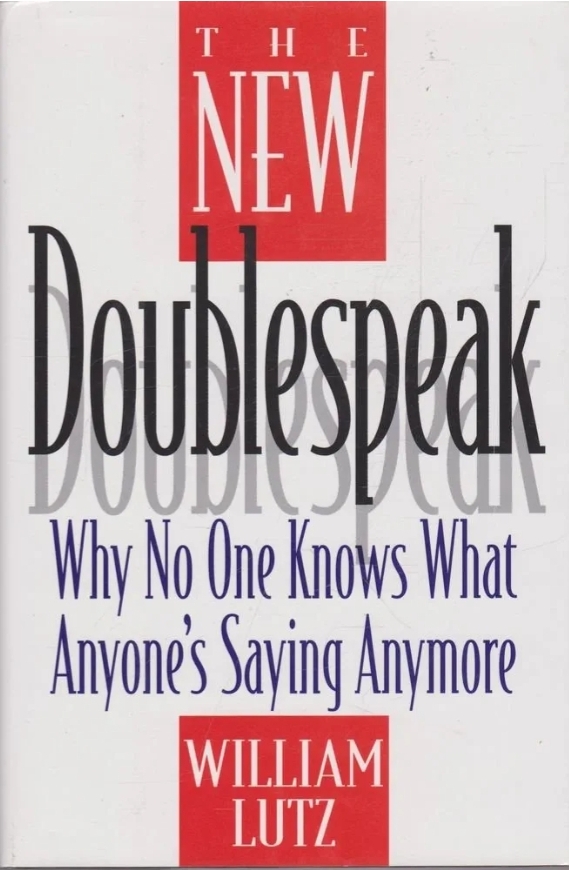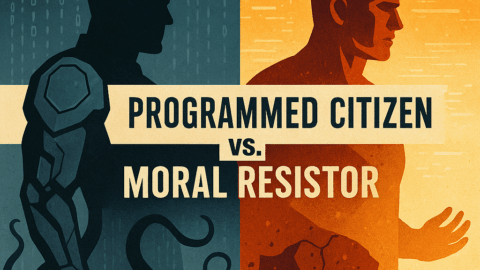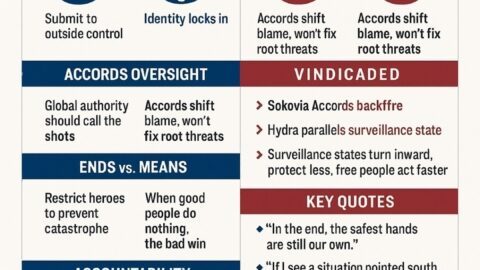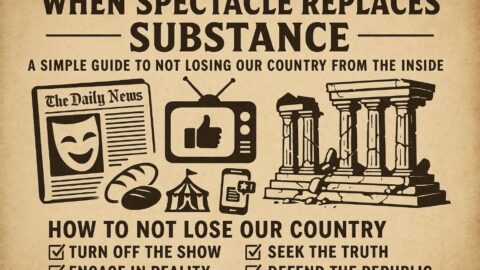The New Doublespeak: Why No One Knows What Anyone’s Saying Anymore
By William D. Lutz
William D. Lutz’s The New Doublespeak (1996) is an eye-opening analysis of how language is manipulated by politicians, corporations, and institutions to obscure truth, mislead the public, and control thought. Lutz, a linguist and scholar, expands on the concept of “Doublespeak,” originally derived from George Orwell’s 1984, showing how deceptive language has evolved in modern society.
What Is Doublespeak?
Doublespeak refers to deliberate language distortion used to mislead, manipulate, and obscure meaning. It involves:
- Euphemisms – Softening harsh realities (e.g., saying “collateral damage” instead of “civilian deaths”).
- Jargon & Bureaucratic Language – Using complex or vague terms to confuse people (e.g., “downsizing” instead of “firing workers”).
- Inflated Language – Making simple things sound more important (e.g., “sanitation engineer” instead of “janitor”).
- Weasel Words – Phrases that seem meaningful but are vague (e.g., “studies suggest” without citing sources).
Lutz argues that doublespeak is not just misleading but dangerous because it undermines accountability and distorts reality.
The Evolution of Doublespeak
Lutz explores how doublespeak has become more pervasive in politics, business, education, and the media. He identifies key areas where it has flourished:
A. Political Doublespeak: Hiding Corruption and War
- War Language: Instead of saying “bombing civilians,” governments use terms like “surgical strikes” or “enhanced interrogation techniques” instead of “torture.”
- Legislation Names: Politicians name bills in deceptive ways (e.g., the “Patriot Act” sounds positive but expands government surveillance).
- Bureaucratic Confusion: Long, complex wording in laws makes it harder for ordinary citizens to understand their rights.
B. Corporate Doublespeak: Concealing Greed & Exploitation
- Mass Layoffs Become “Rightsizing”: Companies fire employees but frame it as a positive restructuring.
- Misleading Food Labels: “All-natural” and “fat-free” don’t mean healthy; these terms are legally vague.
- Financial Scandals: Fraud is downplayed using phrases like “accounting irregularities.”
C. Media Doublespeak: Controlling Public Perception
- “Breaking News” Hype: News networks exaggerate trivial stories to keep viewers hooked.
- Framing Issues: The media manipulates words to sway public opinion (e.g., calling protests “riots” or “peaceful demonstrations”, depending on bias).
The Consequences of Doublespeak
Lutz warns that doublespeak erodes trust in institutions and weakens democracy because it:
- Prevents critical thinking – People struggle to recognize deception when language is unclear.
- Increases government and corporate control – The public remains passive when misled.
- Destroys accountability – Officials and corporations can deny responsibility by using vague terms.
Doublespeak is not just about language—it’s about power. Those who control words control reality.
How to Recognize & Resist Doublespeak
Lutz encourages individuals to fight doublespeak by:
- Being skeptical – Question vague language and ask for clarity.
- Reading critically – Pay attention to words used in media and politics.
- Challenging deceptive language – Call out misleading terms.
- Demanding transparency – Hold leaders accountable for clear communication.
Conclusion
The New Doublespeak is a crucial book for understanding how language shapes power. Lutz reveals that words are often used as weapons to mislead, manipulate, and obscure reality. By recognizing and challenging doublespeak, individuals can reclaim truth, think critically, and resist deception.
In today’s world of political spin, corporate propaganda, and media bias, Lutz’s insights are more relevant than ever.







